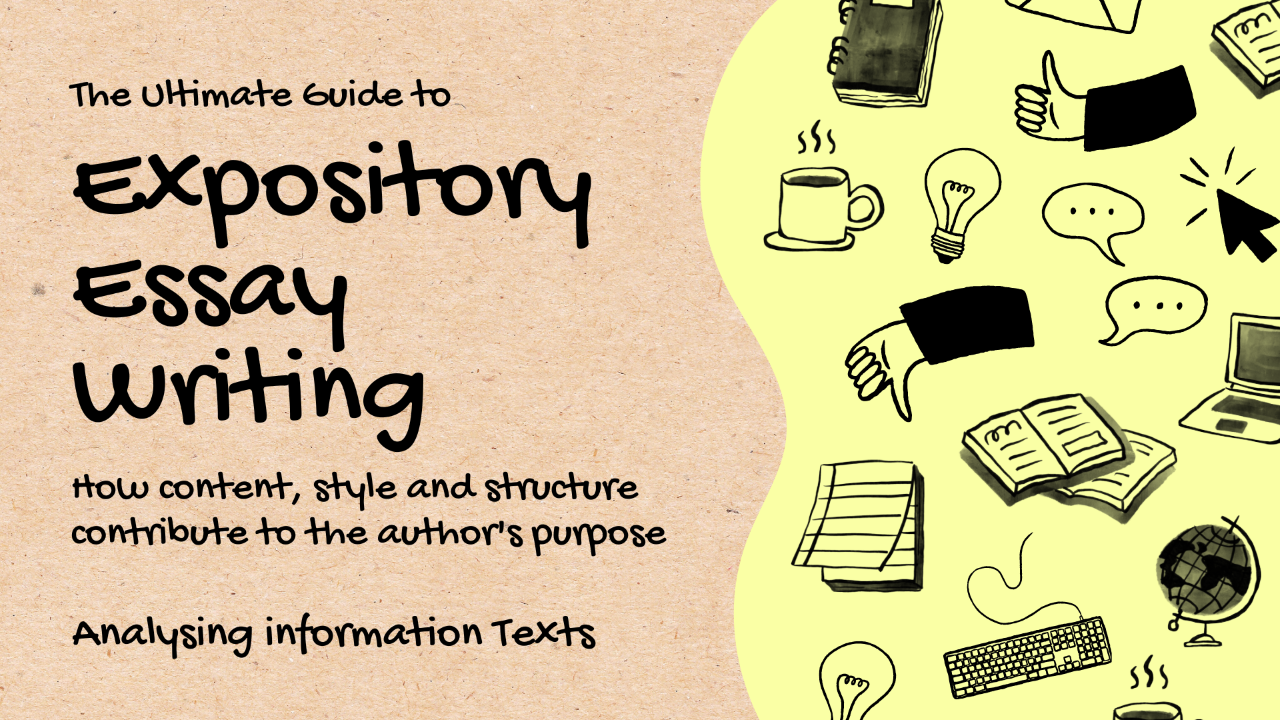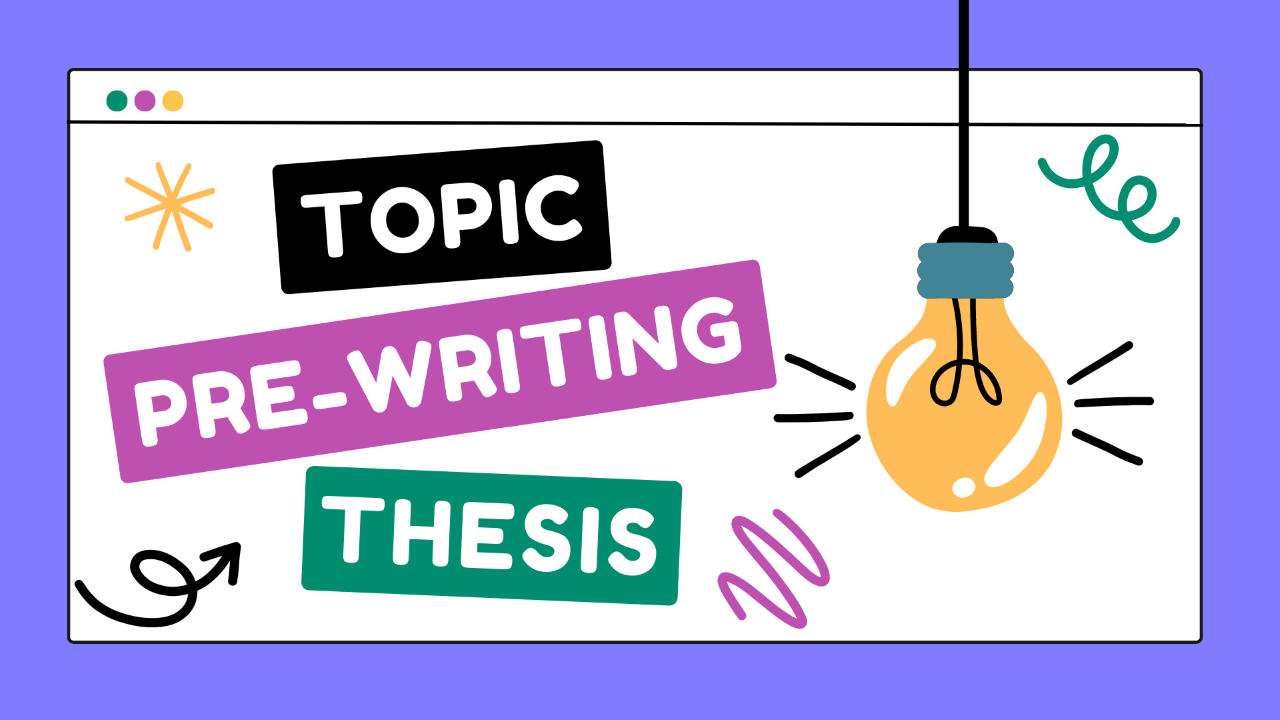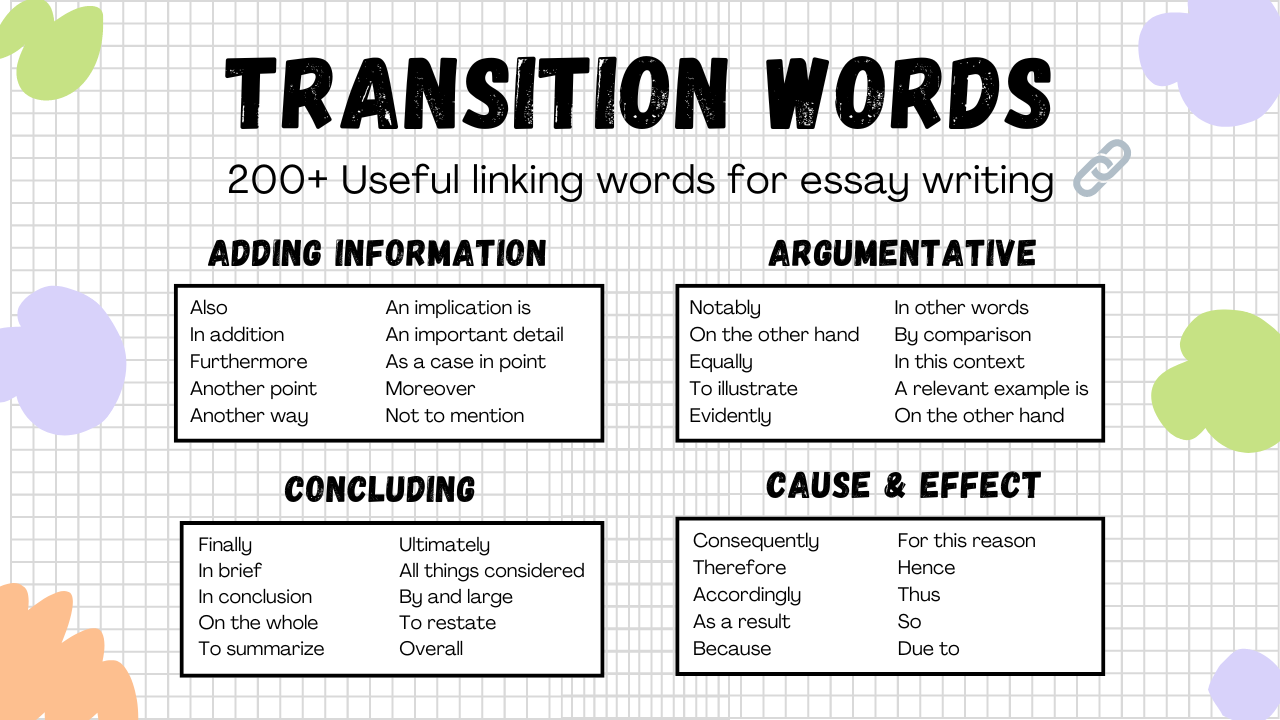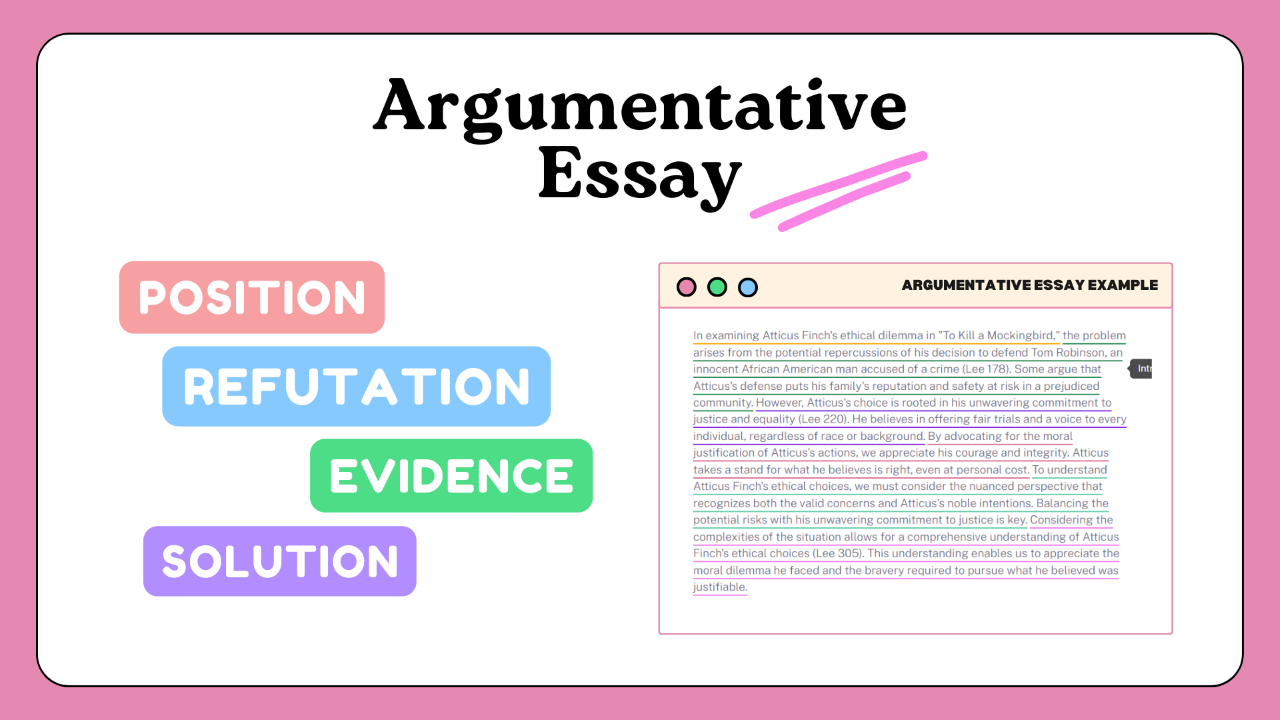
Expository Essay: Exploring the Meaning and Structure with Examples
Step into the world of expository essay writing, where the power of words intertwines with the art of effective communication. Expository essays form an essential genre of non-fiction and academic writing, serving as a vehicle to convey information, explain concepts, and provide analysis. This style of writing prioritises clarity, objectivity, and a logical presentation of ideas, making it a useful skill for students to develop critical thinking. Whether you're a high school student seeking guidance for an assignment or an aspiring writer eager to unlock the secrets of expository writing, this comprehensive guide will help you every step of the way. In this guide, we will not only explore the essence and significance of expository writing but also dissect its structure and format, illustrate crucial concepts through examples, and share invaluable tips to enhance your analytical writing skills.
Defining expository writing and its purpose
Expository writing can be defined as a type of discourse that aims to present information, explain concepts, or explore ideas in a clear, concise, and objective manner. Its primary purpose is to provide a clear and objective understanding of the topic at hand. This means avoiding personal opinions, biases, or attempts to persuade the reader. Instead, the language used should reflect a neutral and informative tone.
When writing an expository essay, the focus is on supporting your points or claims with evidence rather than presenting arguments. The goal is to present a coherent and logical analysis based on the available information and evidence. This may involve using examples, statistics, research findings, or expert opinions to provide a comprehensive and well-rounded understanding of the topic.
Exploring engaging expository essay topics
Expository essays are commonly assigned to students, tasking them with thoroughly examining a particular subject and offering a comprehensive analysis. Whether you are given a specific topic or have the freedom to choose one, it is crucial to approach the planning process thoughtfully and engage in effective prewriting techniques for drafting the thesis and organising your essay.
Here are a few examples of different types of topics that are commonly encountered when writing an expository essay:
Example Expository Topic: Exploring the Causes and Effects
Investigate the causes and effects of air pollution in urban areas.
A good approach to this essay prompt is to analyse the factors contributing to air pollution in cities and explore its impact on human health and the environment. Additionally, provide recommendations for mitigating its effects.
Example Expository Topic: Understanding the Process
Explain the process of photosynthesis and its importance in the ecosystem.
In this example, providing a detailed explanation of the biological process of photosynthesis and highlighting its significance in sustaining life on Earth would be effective. It is also important to discuss the interdependence between plants and other organisms to provide a comprehensive understanding of the topic.
Example Expository Topic: Examining the Similarities
Compare and contrast different approaches to alternative medicine.
When addressing this topic, it is valuable to explore various alternative medicine practices, such as acupuncture, herbal remedies, and homoeopathy. Analyse their principles, effectiveness, and potential benefits and drawbacks in comparison to conventional medicine.
Example Expository Topic: Classifying the types
Classify different types of musical genres based on their characteristics and origins.
When approaching such classification topics, it is valuable to examine various musical genres, such as jazz, rock, classical, hip-hop, and pop. Explore their distinct characteristics, historical origins, and the cultural influences that shape each genre. Classify them based on common traits and highlight the diversity within the realm of music.
Example Expository Topic: Probing the Meaning
Define the concept of cultural diversity and examine its importance in fostering understanding and inclusivity in society.
When approaching definition topics, it is valuable to provide a clear and comprehensive definition of cultural diversity, emphasising the coexistence of different cultural backgrounds, traditions, and perspectives. Explore the benefits of cultural diversity in promoting tolerance, empathy, and mutual respect. Discuss examples and case studies that illustrate the positive impact of embracing cultural diversity in various societal contexts.
By brainstorming these topic examples and approaching them with thorough analysis and supporting evidence, you can effectively engage readers and provide them with valuable insights and information. Once you have collected the necessary facts, evidence, and key points for your essay, it is time to move to the writing phase.
Decoding the expository essay structure: Intro, body & conclusion
To effectively communicate ideas and engage readers, it is crucial to grasp the format and structure of an expository essay. The well-defined organisation of an expository essay allows for the logical progression of thoughts, ensuring that information is presented in a cohesive and easily comprehensible manner. By understanding and applying the appropriate structure, you can effectively convey your message, enhance clarity, and create a seamless reading experience for your audience.
The general format of the expository essay consists of three key steps: introducing your essay topic, structuring the body, and crafting a conclusion. Each step plays a crucial role in creating a well-organised and engaging essay. Let's explore each step in detail.
1 Opening paragraph:
When it comes to structuring your essay, the introduction paragraph serves as a vital starting point. It should effectively grab the reader's attention, provide context, and present the main idea of your essay.
- Grabbing the reader's attention: Use a compelling fact, quote, or anecdote hook related to your topic to pique the reader's interest.
- Providing context: Give a brief overview of the subject matter to provide necessary background information for the reader to understand the topic.
- Presenting the main idea: Conclude your introduction paragraph with a clear and concise thesis statement. This statement should succinctly outline the main purpose of your essay.
Let’s take an example of the topic “Examine the challenges and benefits of implementing renewable energy sources on a global scale.” for writing an introduction paragraph for the expository essay. Hover over to each underlined element for a better presentation:
Example of expository essay: Introduction paragraph
Did you know that renewable energy sources have the potential to revolutionise the global energy landscape? With increasing concerns about climate change and the finite nature of fossil fuels, the exploration of alternative energy options has become paramount. This paper examines the challenges and benefits of implementing renewable energy sources on a global scale, highlighting the potential for sustainable and cleaner energy solutions.
2 Structuring the body paragraph:
- Opening topic sentence: To ensure a well-organised and coherent essay, structure each body paragraph around a specific key point related to your thesis statement. Begin each body paragraph with an opening topic sentence that directly links to your thesis. This topic sentence sets the stage for the information and analysis to follow.
- Supporting evidence: After the opening sentence, it's essential to provide supporting evidence to strengthen your thesis. This evidence can include facts, statistics, expert opinions, examples, or quotations from credible sources. Make sure to cite your sources appropriately to maintain the integrity of your essay.
- Analysing the evidence: After presenting the supporting evidence, analyse the information and explain its significance in relation to your thesis statement. Provide insights, explanations, and interpretations to help the reader understand the relevance and impact of the evidence you have presented. This analysis should demonstrate your understanding of the topic and showcase your ability to critically evaluate the information.
- Transitioning between ideas: To ensure a smooth flow between paragraphs, include transitional words or phrases that connect one idea to the next. These transitions help guide the reader through your essay, making it easier to follow your line of reasoning. Some examples of transitional words or phrases include "Furthermore," "In addition," "On the other hand," or "Moreover."
Example of expository essay: Body
One of the key challenges in implementing renewable energy sources on a global scale is the initial investment required for infrastructure development. According to a report by the International Renewable Energy Agency (IRENA), the upfront costs of constructing renewable energy facilities can be substantial. For instance, building large-scale solar power plants or offshore wind farms necessitates significant financial resources. Despite the high initial costs, it is crucial to consider the long-term benefits. Renewable energy sources provide a sustainable and clean alternative to fossil fuels, reducing greenhouse gas emissions and mitigating the impacts of climate change. Moreover, as technology advances and economies of scale are realised, the costs of renewable energy infrastructure are expected to decrease, making them more economically viable in the future. Furthermore, the implementation of renewable energy sources brings additional benefits beyond environmental considerations.
3 Drawing a conclusion:
The last step in structuring your essay is the conclusion, where you bring your ideas together and provide a satisfying ending to your expository essay. To structure the concluding paragraph consider:
- Restating the Thesis: Begin the conclusion by restating your thesis statement in a concise and impactful manner. This reinforces the main purpose of your essay and reminds the reader of the central argument or idea.
- Summarising the Main Points: Provide a brief summary of the key points discussed in the body paragraphs. However, avoid introducing new information or going into extensive detail. Instead, focus on highlighting the main ideas and findings that support your thesis.
- Closing Thoughts: Conclude your essay with some closing thoughts that leave a lasting impression on the reader. You can reflect on the significance of the topic, discuss potential implications or future developments, or offer a thought-provoking question to encourage further exploration.
Example of expository essay: Conclusion paragraph
The exploration of renewable energy sources on a global scale holds great potential for revolutionising the energy landscape. Despite the challenges of initial investment, the long-term benefits of sustainable and cleaner energy solutions cannot be ignored. Not only do renewable energy sources reduce greenhouse gas emissions and combat climate change, but they also offer the prospect of economic viability as technology advances. Moreover, the implementation of renewable energy sources brings additional advantages beyond environmental considerations, such as job creation and energy independence. By embracing renewable energy, we can pave the way towards a more sustainable and prosperous future for generations to come.
By following this structure for your expository essay's conclusion, you can effectively wrap up your ideas and leave a strong impression on the reader, reinforcing the main points and leaving them with something to ponder.
Tips for writing an excellent expository essay
- Understanding the assignment: Carefully read and comprehend the essay prompt or guidelines. Identify key requirements, including topic, scope, and specific instructions.
- Brainstorming the topic: When brainstorming the topic for your expository essay, it is important to generate a variety of ideas and consider your own interests to ensure a fruitful and engaging exploration of the subject matter. The process of brainstorming allows you to tap into your creativity and generate a pool of potential ideas that can be further developed and analysed.
- Conducting thorough research: Gather information from credible sources like academic journals, books, reputable websites, and expert opinions. Take notes and organise research for proper referencing.
- Developing a clear thesis statement: Develop a concise and strong thesis statement that outlines the central point of your essay.
- Creating an effective Outline: Organise thoughts and ideas with a well-structured outline. Divide the essay into introduction, body paragraphs, and conclusion. Plan main points for each paragraph to follow in body.
- Writing a compelling introduction: Engage readers with a strong hook, such as a thought-provoking question or surprising fact. Provide background information and end the introduction with a clear thesis statement.
- Presenting clear and concise body paragraphs: Each paragraph should focus on a single main idea. Start with a topic sentence, provide supporting evidence and examples, and analysed their significance. Use proper citation styles such as APA, MLA for external sources.
- Concluding with impact: Summarise main points without introducing new information. Restate the thesis statement and provide final thoughts, insights, or suggestions for further exploration.
- Revising and Editing: Review the essay for clarity, coherence, and grammar. Ensure concise and precise writing. Finally, check the paper for any plagiarism.
By applying these essential tips and techniques, you will master the skills of writing an excellent expository essay. Practice regularly, seek guidance as needed, and aim for clarity and effectiveness in your writing.
Frequently asked questions about expository essay
Free Sample Essays & Papers
Download free PDF examples of essays and papers in various subjects, all with different citation styles! Get inspired, conquer writer's block, and find the perfect format for your next assignment. Click to download now!





